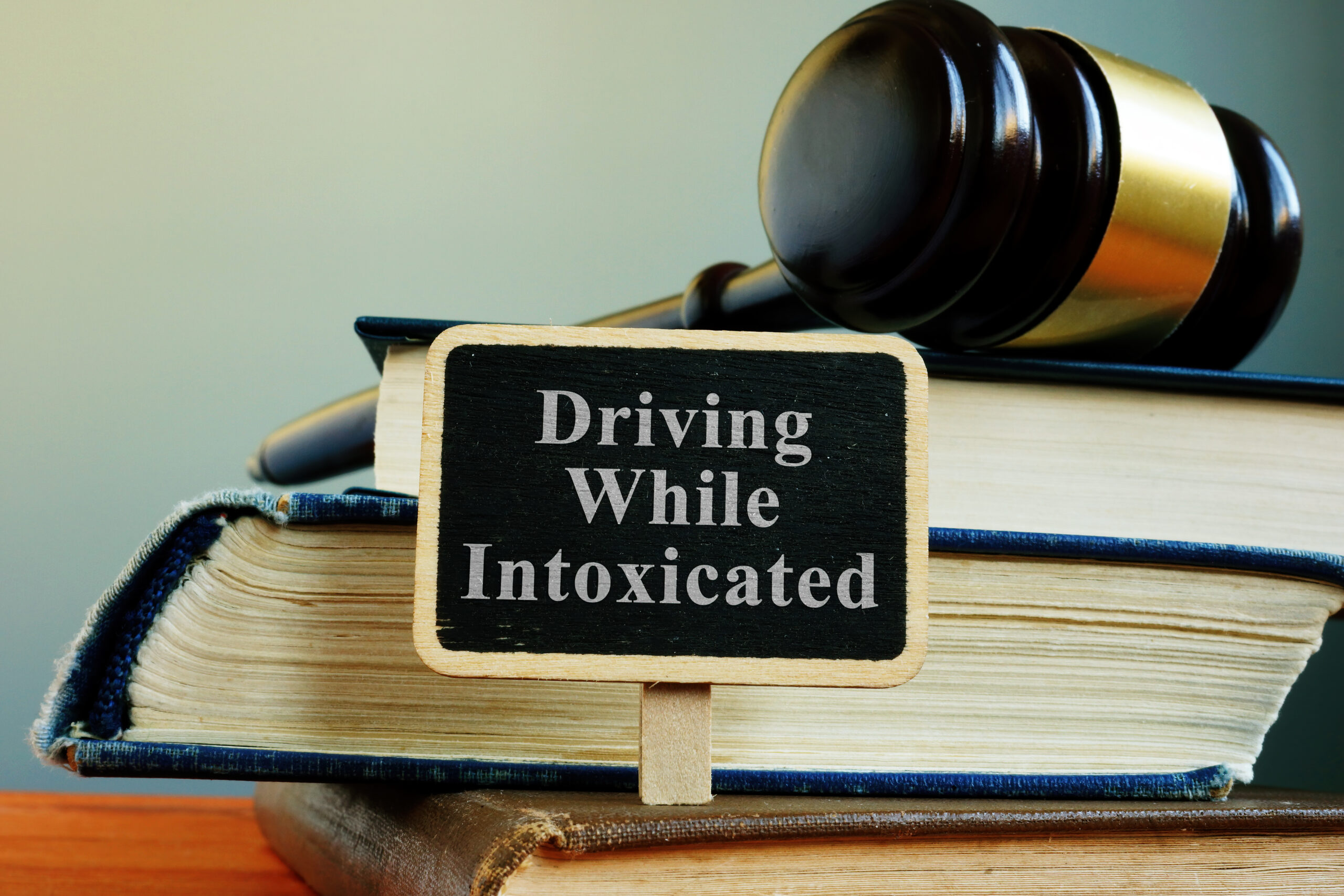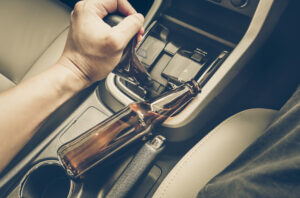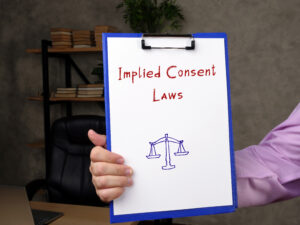Can I Keep My CDL if I Am Arrested for DWI?

A Commercial Driver’s License (CDL) is more than just a license—it’s a livelihood. For truckers, delivery drivers, and other professionals, their career depends on maintaining a clean driving record and staying compliant with federal and state regulations.
A DWI (driving while intoxicated) arrest, however, can put all of that in jeopardy.
If police arrested you for DWI in California, you may wonder whether you can keep your CDL. The short answer: It depends. The outcome will hinge on several factors, including the circumstances of your arrest, the strength of the evidence, and how well you navigate the legal process.
At Rodriguez Law Group, Los Angeles DUI lawyers are here to help you protect your CDL and your career. Call us at (213) 995-6767 for your free case evaluation.
Understanding the Impact of a DWI Arrest on a CDL
California has strict laws regarding DWI for all drivers, but CDL holders face even tougher standards. While the legal blood alcohol content (BAC) limit for most drivers is 0.08%, CDL holders are subject to a lower limit of 0.04% when operating a commercial vehicle.
This means even one or two drinks could put a CDL holder over the legal limit.
A DWI arrest triggers both administrative and criminal processes:
- Administrative Penalties: Managed by the California Department of Motor Vehicles (DMV), which can suspend or revoke your CDL.
- Criminal Charges: Handled by the courts and can result in fines, jail time, and a permanent criminal record.
Both processes can significantly impact your ability to continue working as a commercial driver, even if the DWI occurred in a personal vehicle.
CDL Disqualifications for DWI
A DWI arrest can lead to the suspension or disqualification of your CDL, depending on the severity of the offense and your driving history.
First Offense:
- A first-time DWI conviction often results in a one-year disqualification of your CDL, regardless of whether the offense occurred in a commercial or personal vehicle.
- If hazardous materials were involved, the disqualification period increases to three years.
Repeat Offenses:
- A second DWI conviction leads to a lifetime disqualification of your CDL.
- Certain aggravated offenses, such as refusing a chemical test or causing a fatal accident, can also result in a lifetime ban.
Understanding these disqualifications is essential for planning your defense and taking steps to protect your livelihood.
Administrative Penalties and the DMV Hearing Process
The Administrative Per Se (APS) process begins immediately after a DWI arrest. For CDL holders, this process is particularly critical because the DMV can impose penalties even before a criminal conviction.
Key Aspects of the DMV Hearing Process:

- Immediate Action Required: CDL holders have 10 days from the date of arrest to request a DMV hearing. Failing to do so results in automatic suspension.
- Limited Scope: The hearing focuses on whether the officer had probable cause for the stop, whether you were lawfully arrested, and whether your BAC exceeded the legal limit.
- Potential Outcomes: A successful hearing may prevent license suspension, while an unfavorable decision could result in the temporary or permanent loss of your CDL.
An experienced attorney can represent you at the hearing, presenting evidence and challenging the basis for suspension.
Criminal Penalties for DWI and Their Effect on a CDL
In addition to administrative penalties, a DWI conviction carries criminal consequences that can further jeopardize your CDL.
Potential Criminal Penalties:
- Fines: Ranging from several hundred to thousands of dollars.
- Jail Time: Sentences vary depending on whether the offense is a misdemeanor or felony.
- Probation: CDL holders may face probation with restrictions on driving.
- Ignition Interlock Device (IID): Mandatory installation of an IID in your personal vehicle.
A criminal conviction not only affects your ability to hold a CDL but also creates a permanent record that may impact future employment opportunities.
Mitigating Factors That Could Influence Your Case
While a DWI arrest is serious, several factors can mitigate its impact on your CDL. These include:
- Challenging the Arrest: If the officer lacked probable cause for the traffic stop, the arrest may be deemed invalid.
- Questioning BAC Results: Faulty equipment or improper procedures during breath or blood testing can lead to inaccurate BAC readings.
- Exploring Alternative Resolutions: In some cases, charges can be reduced to lesser offenses, such as reckless driving, which may not trigger CDL disqualification.
Working with a skilled DWI attorney is essential for identifying these mitigating factors and building a strong defense.
How DWI Charges Differ for CDL Holders
CDL holders face harsher consequences for DWI due to the higher standard of care required for commercial drivers. Even an offense committed in a personal vehicle can impact your CDL.
Unique Challenges for CDL Holders:
- Lower BAC Threshold: The 0.04% limit applies only to commercial vehicle operation but reflects the stricter standards imposed on CDL holders.
- Lifetime Disqualification: Certain offenses, such as a second DWI, result in permanent loss of a CDL.
- Employer Notification: CDL holders are often required to report arrests or convictions to their employer, risking job termination.
These stricter rules highlight the importance of taking immediate action to protect your CDL after a DWI arrest.
Options for Keeping Your CDL After a DWI Arrest
If you’ve been arrested for DWI, there are steps you can take to minimize the impact on your CDL.
What You Can Do:
- Request a DMV Hearing: Act quickly to challenge the administrative suspension of your CDL.
- Enroll in an Alcohol Education Program: Completing a program may demonstrate good faith and potentially reduce penalties.
- Negotiate a Plea Deal: In some cases, charges can be reduced to avoid CDL disqualification.
- Pursue Legal Defenses: An attorney can identify weaknesses in the prosecution’s case, such as procedural errors or unreliable evidence.
These steps can improve your chances of retaining your CDL and continuing your career.
The Federal Motor Carrier Safety Administration (FMCSA) and DWI Standards
CDL holders are regulated not only by state laws but also by federal rules set by the Federal Motor Carrier Safety Administration (FMCSA). The FMCSA establishes strict guidelines to ensure public safety and holds CDL drivers to a higher standard than non-commercial drivers.
Key FMCSA DWI Regulations for CDL Holders:

- Lower BAC Limit: CDL drivers are subject to a 0.04% BAC limit while operating commercial vehicles, compared to the 0.08% limit for standard drivers.
- Immediate Suspension: Any DWI arrest or positive BAC test can result in immediate suspension of driving privileges for commercial vehicles.
- Mandatory Reporting: CDL holders must notify their employer within 30 days of a DWI conviction, even if the offense occurred in a personal vehicle.
Failure to comply with FMCSA regulations can lead to severe penalties, including disqualification from operating commercial vehicles nationwide.
Impact of a DWI Conviction on Employment
For CDL holders, a DWI conviction can extend beyond legal penalties and lead to significant professional consequences. Employers in the transportation industry prioritize safety and compliance, making a DWI a serious liability.
Potential Employment Challenges:
- Termination: Many companies have zero-tolerance policies for DWI convictions and may terminate drivers immediately.
- Hiring Barriers: Future employers may view a DWI on your record as a red flag, making it harder to find work.
- Insurance Costs: Employers may face higher insurance premiums for drivers with DWI convictions, leading them to avoid hiring such individuals.
Maintaining your CDL and avoiding a conviction is critical to preserving your professional reputation and employability.
Can You Get a Restricted CDL After a DWI?
In some cases, drivers whose CDLs are suspended may be eligible for a restricted license that allows limited driving privileges. However, these licenses come with strict conditions and may not be available for all CDL holders.
Eligibility for a Restricted CDL:
- Typically available for first-time offenders.
- Requires enrollment in an alcohol education or treatment program.
- Restricted licenses may prohibit the operation of specific types of commercial vehicles, such as those transporting hazardous materials.
An attorney can help determine whether you qualify for a restricted CDL and guide you through the application process.
The Role of Chemical Testing in DWI Cases
Chemical testing is a cornerstone of DWI enforcement and can play a pivotal role in your case. CDL holders are subject to stringent testing requirements, both during traffic stops and random employer screenings.
Types of Chemical Tests:
- Breath Tests: Measure BAC through a breath sample.
- Blood Tests: Provide more precise BAC readings but are subject to chain-of-custody protocols.
- Urine Tests: Less common but used in some cases to detect alcohol or drugs.
Challenging Chemical Test Results:
Errors in testing equipment, improper procedures, or mishandling of samples can lead to inaccurate results. A skilled attorney can review the circumstances of your test to identify potential defenses.
Understanding Implied Consent Laws for CDL Holders

Under California’s implied consent law, all drivers, including CDL holders, are required to submit to chemical testing if lawfully arrested for DWI. Refusing a test can have severe consequences, particularly for CDL drivers.Penalties for Refusing a Chemical Test:
- Automatic suspension of your CDL for at least one year on a first refusal.
- Lifetime disqualification for subsequent refusals.
- Additional criminal penalties, including fines and potential jail time.
While refusing a test may seem like a viable option at the moment, the long-term consequences often outweigh the immediate benefits.
How a DWI Affects Different Classes of CDL
Not all CDL holders operate the same type of vehicles, and the consequences of a DWI can vary depending on the class of CDL held.
Class A CDL:
Holders can operate large vehicles like tractor-trailers. A DWI conviction often results in stricter penalties due to the size and potential danger of these vehicles.
Class B CDL:
Used for smaller commercial vehicles like buses or dump trucks. Employers in these industries may be less forgiving of DWI offenses, as passenger safety is a priority.
Class C CDL:
Applies to vehicles transporting hazardous materials or a limited number of passengers. DWI offenses involving hazardous materials can result in lifetime disqualification.
Understanding how your specific CDL class impacts your case is crucial for tailoring your defense strategy.
Reinstating Your CDL After a DWI Suspension
If the state suspends your CDL due to a DWI, reinstating it involves meeting specific conditions set by the DMV and potentially your employer.
Steps to Reinstate Your CDL:
- Complete Suspension Period: Fulfill the mandatory suspension duration based on your offense.
- Satisfy Court Requirements: Pay fines, complete probation, or fulfill any court-ordered conditions.
- Enroll in Alcohol Education Programs: Many reinstatement processes require proof of completion.
- Pay Reinstatement Fees: Fees vary based on the severity of the offense and the length of the suspension.
- Pass CDL Testing: You may be required to retake written and skills tests to regain your CDL.
An attorney can expedite the process by ensuring compliance with all necessary steps.
The Long-Term Impact of a DWI on Your CDL Career
Even if you successfully reinstate your CDL, a DWI conviction can have long-term consequences that affect your professional prospects.
Challenges After Reinstatement:
- Employment Gaps: Time spent without a CDL can create gaps in your work history, making future employers hesitant.
- Higher Insurance Costs: Employers may face increased insurance premiums, leading them to avoid hiring drivers with a DWI on record.
- Reputation Damage: A DWI conviction can harm your professional reputation, especially if it involves publicized legal proceedings.
Proactively addressing these issues with the help of an attorney can minimize the long-term impact on your career.
Frequently Asked Questions (FAQs)
- Can I drive a personal vehicle if my CDL is suspended?
Yes, a CDL suspension may not always apply to your personal driver’s license. However, penalties vary based on the specifics of your case. - What happens if I refuse a chemical test?
Refusing a chemical test typically results in automatic suspension of your CDL, in addition to penalties under California’s implied consent laws. - How long does a DWI stay on my record?
In California, a DWI conviction remains on your driving record for 10 years, impacting CDL renewals and employment opportunities. - Will a DWI affect my ability to work for a new employer?
Yes, many employers review driving records and may disqualify candidates with recent DWI convictions or suspensions.
Protect Your Career: Safeguard Your CDL After a DWI Arrest

Ambrosio E. Rodriguez, Los Angeles DUI Lawyers
A DWI arrest doesn’t have to end your career as a commercial driver. By taking swift action and working with an experienced attorney, you can fight to protect your CDL, your livelihood, and your future.
At Rodriguez Law Group, we understand the unique challenges CDL holders face in DWI cases. Call us today at (213) 995-6767 for a free case evaluation. Let us help you navigate the legal process and build a strong defense to secure the best possible outcome.


